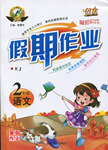题目内容
Read how Sofia writes a composition.
180words
小题1:What does Sofia do first before she writes the composition?
小题2:When she meets some words she’s not sure, .
小题3:From the passage we can know Sofia is a .
 |  |  |  |
| 1.The weekend before she has to give it to the teacher, she sits on her own in the kitchen. First, she looks at the title and thinks a lot. | 2.Then she writes a few ideas onto a piece of paper, in no particular order. She looks up a couple of words in the dictionary and writes those down. | 3.Then she has a sandwich and goes to watch TV. | 4.The next day she looks at what  she wrote. She adds some more ideas. Then she decides how to order her ideas. She starts to write. she wrote. She adds some more ideas. Then she decides how to order her ideas. She starts to write. |
 |  |  |  |
| 5.There are some words she’s not sure about so she looks them up in her dictionary. | 6.When she has finished writing, she reads  carefully through her composition. She crosses some things out and changes one or two sentences. carefully through her composition. She crosses some things out and changes one or two sentences. | 7.Then she looks back at her notes from other written work. She makes sure she hasn’t made any of the same mistakes. | 8.Finally, she writes out her composition onto a clean piece of paper and puts it in her bag. |
小题1:What does Sofia do first before she writes the composition?
| A.She looks at the title and thinks a lot. |
| B.She has a sandwich and goes to watch TV. |
| C.She writes a few ideas onto a piece of paper. |
| D.She looks up a couple of words in the dictionary. |
| A.she writes them down | B.she looks back at her notes |
| C.she crosses some things out | D.she looks them up in the dictionary |
A.drive r r | B.doctor | C.student | D.parent |
小题1:A
小题1:D
小题1:C
略

练习册系列答案
 鸿图图书寒假作业假期作业吉林大学出版社系列答案
鸿图图书寒假作业假期作业吉林大学出版社系列答案
相关题目
 etimes people call ours a “throwaway society”. That means that we’re always throwing away old things and buying new ones. Many times, you no longer need something, but someone else may just need to buy one. For example, if your baby doesn’t like his toy car any longer, why not give it to a nearly family who has a little kid? That’s one less plastic toy car that they need to buy. It’s also one less plastic toy that needs to be produced, packaged and shipped to the toy store.
etimes people call ours a “throwaway society”. That means that we’re always throwing away old things and buying new ones. Many times, you no longer need something, but someone else may just need to buy one. For example, if your baby doesn’t like his toy car any longer, why not give it to a nearly family who has a little kid? That’s one less plastic toy car that they need to buy. It’s also one less plastic toy that needs to be produced, packaged and shipped to the toy store. erlined word "ours" in the passage refers to (指代) _______.
erlined word "ours" in the passage refers to (指代) _______. ing them with others.
ing them with others.